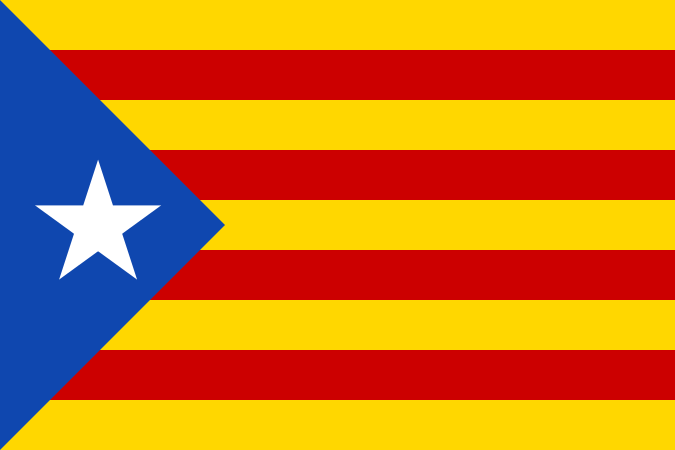Extra Credits
Published on 31 Oct 2017Mary Shelley’s Frankenstein launched the entire genre of science fiction. What made it unique? What did Shelley create, and how did her view of the possibilities of science shape the way we imagine our world even today?
November 1, 2017
Frankenstein: The Modern Prometheus – Extra Sci Fi – #1
Spain versus Catalonia
Tim Black on the situation in Catalonia after the abortive declaration of independence:
An excessive focus on history can obscure the real dynamic informing the Catalonia autonomous community’s push for independence from Spain. It makes it look as if what we’re seeing now is a revival of a longstanding strain of Catalan nationalism, drawing on its 12th-century legacy as a principality, fired up by the divided union of Aragon and Catalonia during the early modern era, and burnished with the left-wing romance of Catalonia’s stand-alone, red-and-black resistance to General Franco during the 1930s. It makes it look, ultimately, as if Catalonia is not only an entity distinct from the rest of Spain, it is also a victim of, if not Spain, than certainly the Spanish state.
Not that matters have been helped by the Spanish government’s brutal, anti-democratic response to Catalonia’s independence referendum, as unconstitutional and therefore illegal as it was. It merely reinforced the impression that this is a conflict between an oppressive state and an oppressed people. After all, such is the defensiveness and weakness of the Spanish political class, we saw armed units of Guardia Civil assaulting Catalan voters, forcibly shutting polling stations and confiscating ballot boxes, and now we see charges of rebellion and sedition being laid at the doors of the leading pro-independence Catalan politicians, which has even prompted the Catalan president Carles Puigdemont to flee to Brussels. This really does look like a conflict rooted in some longstanding desire of the Spanish state to bend the Catalans to its will.
But to think that misses the real catalyst for the Spanish crisis, which lies less in Madrid or Barcelona, than in the European Union’s HQ in Brussels. That’s because, in the EU’s flight, manned by Western Europe’s political classes, from the democratic accountability of national peoples, in its demonisation of the very idea of national sovereignty as a species of 1930s-style nationalism, indeed in its essential anti-national elitism, it has created a transnational, technocratic set of institutions that necessarily weakens national state structures, depriving nations of numerous lawmaking powers, border controls and economic independence. Admittedly, the Spanish nation state has never been particularly strong. In common with the rest of Europe, its party-political system is in disarray, with its two traditional behemoths, the Socialist and Popular parties, hollowed out, and populist rivals exploding on to the scene. And, specific to Spain, the state has failed properly to cohere itself as a state, with suppressed regional antagonisms re-emerging in the post-Franco era. But the EU has not only exacerbated the internal weaknesses of the Spanish state; it has also fundamentally undermined even the possibility of a functioning nation state.
[…]
Yes, the cultural distinction between Catalonia and the rest of Spain has come to the fore in recent decades, with the red-yellow-and-blue Estelada a familiar sight hanging from buildings, and Catalan a familiar sound on the streets. But it’s clear that the driving force is less cultural difference, no matter how divisive, than the experience of EU-driven austerity as an unnecessary drain on an economically rich region. This is why support for Catalan independence has only risen dramatically since the economic crisis. As the Financial Times puts it: ‘After decades during which Catalan support for independence hovered between 15 and 20 per cent, secessionist sentiment started climbing rapidly in 2009. By 2011, according to the closely followed survey by the Catalan Centre for Opinion Studies (CEO), support for independence was above 30 per cent. Two years later, it reached an all-time high of 48.5 per cent.’
This is not a uniquely Spanish phenomenon, either. In other EU member states, the same dynamic is at work, with richer regions or areas with a sufficiently distinct cultural identity seeking to unfasten themselves from the rest of their respective nations. You can see it in the desire for greater economic autonomy of the rich Lombardy and Veneto regions in northern Italy. And you can see it again in Belgium, with the wealthy northern region of Flanders continually seeking to decouple itself from the de-industrialised, relatively impoverished southern region of Wallonia.
James May’s Top Toys
railwayman2013
Published on 2 Jan 2013I love hornby trains !!!
QotD: The pursuit of perfection
The maxim “Nothing avails but perfection” may be spelt shorter: “Paralysis”.
Winston Churchill, memorandum to General Hastings Lionel Ismay, 1942-12-06.




